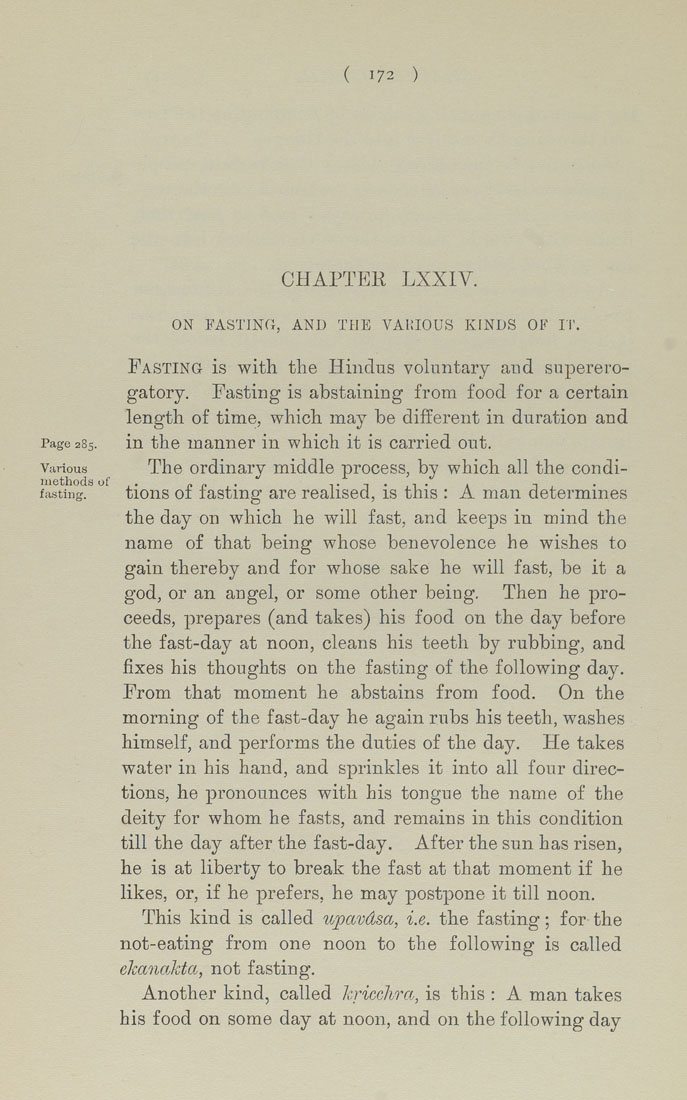( 172 )
CHAPTER LXXIV.
ON FASTING, AND THE VAhlOUS KINDS OF IT.
Fasting is with the Hindus voluntary and superero¬
gatory. Pasting is abstaining from food for a certain
length of time, which may be different in duration and
Page 285. in the manner in which it is carried out.
Various The ordinary middle process, by which all the condi-
fasting. tions of fasting are realised, is this : A man determines
the day on which he will fast, and keeps in mind the
name of that being whose benevolence he wishes to
gain thereby and for whose sake he will fast, be it a
god, or an angel, or some other being. Then he pro¬
ceeds, prepares (and takes) his food on the day before
the fast-day at noon, cleans his teeth by rubbing, and
fixes his thoughts on the fasting of the following day.
From that moment he abstains from food. On the
morning of the fast-day he again rubs his teeth, washes
himself, and performs the duties of the day. He takes
water in his hand, and sprinkles it into all four direc¬
tions, he pronounces with his tongue the name of the
deity for whom he fasts, and remains in this condition
till the day after the fast-day. After the sun has risen,
he is at liberty to break the fast at that moment if he
likes, or, if he prefers, he may postpone it till noon.
This kind is called upctvdsa, i.e. the fasting; for the
not-eating from one noon to the following is called
ekana,ktct, not fasting.
Another kind, called kricchrct, is this : A man takes
his food on some day at noon, and on the following day
|








